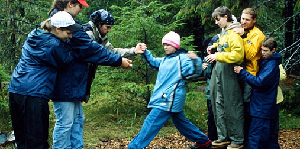Campus Safety

UAS makes safety a top priority and it expects its students to take a responsible attitude toward their own safety and the safety of their fellow students. Crime prevention and safety is the primary responsibility of UAS, but it takes the cooperation of all members of the campus community to achieve a safe environment. The three campuses of UAS are very safe, as compared to many universities, but safety should never be taken for granted. Victims and/or witnesses of crime, no matter how small, should report incidents to the police and to UAS officials, to maintain the safe living and learning environment.
The municipal police department has the responsibility to enforce the law and to respond to all reports of criminal activity. The University 's Facilities Services department has jurisdiction over the UAS efforts to promote safety and security on its campuses.
Clery Campus Boundary Maps
Annual Security Report
The Jeanne Clery Disclosure of Campus Security Policy and Campus Crime Statistics Act (the Clery Act) requires higher education institutions to provide timely warnings of crimes that represent a threat to the campus community and to publish their campus security policies. The Clery Act also requires that the crime data are collected, reported and disseminated to the campus community, the Department of Education and potential students and employees.
Your safety and security are a priority at the University of Alaska Southeast. It is our policy to comply with the Clery Act and provide you with the required information. This 2025 Annual Security Report contains important information from the previous three calendar years (2021–2023) concerning reported offenses, arrests, crimes, and disciplinary referrals that occurred in our Clery geography: on campus, certain off-campus buildings or property owned or controlled by the University, and public property within or immediately adjacent to and accessible from campus. The report also includes institutional policies concerning campus security, alcohol and other drug use, crime prevention strategies, and how to report crimes, sexual assault, and other related matters.
This report includes statistics for the Juneau, Juneau Technical Educational Center, Ketchikan, and Sitka campuses. The general information included is relevant to all University of Alaska Southeast campuses. Where appropriate, information unique to each campus is highlighted. UA Board of Regents Policies and Regulations are applicable to all campuses.
For more information about the report, please contact:
Mitzi Bolaños Anderson, J.D., LL.M. (she/her)Office of Rights, Compliance, and Accountability Director (Title IX, ADA/504, EEO, Clery)
11066 Auke Lake Way
Juneau, AK 99801
uas.orca@alaska.edu
907-796-6036
Campus Fire Safety Right-to-Know Act
The Campus Fire Safety Right-to-Know Act was signed into law on August 14, 2008. This legislation requires colleges and universities to report fire safety information related to on-campus residence halls. The 2021 Fire Safety Report includes general information and fire statistics from the previous three calendar years (2018-2020) for the UAS Juneau campus — the only campus with residential facilities.
Several statistics are required to be included in the report: the number of fires; fire-related deaths; fire injuries; the cause of these fires; as well as the amount of damage caused by fires. Additionally, UAS is required to report the fire safety features of on-campus residence facilities, including sprinklers, fire alarms, and other fire/life safety systems along with plans for future improvements to fire safety systems. Finally, UAS is required to list the type and amount of fire safety training provided to students and employees.
The UAS Health and Safety Office maintains a fire log for the Juneau Campus Residence Life Facilities that is available to the public during business hours. To set up an appointment to view the fire log, contact the Health and Safety Office at 907-796-6077.